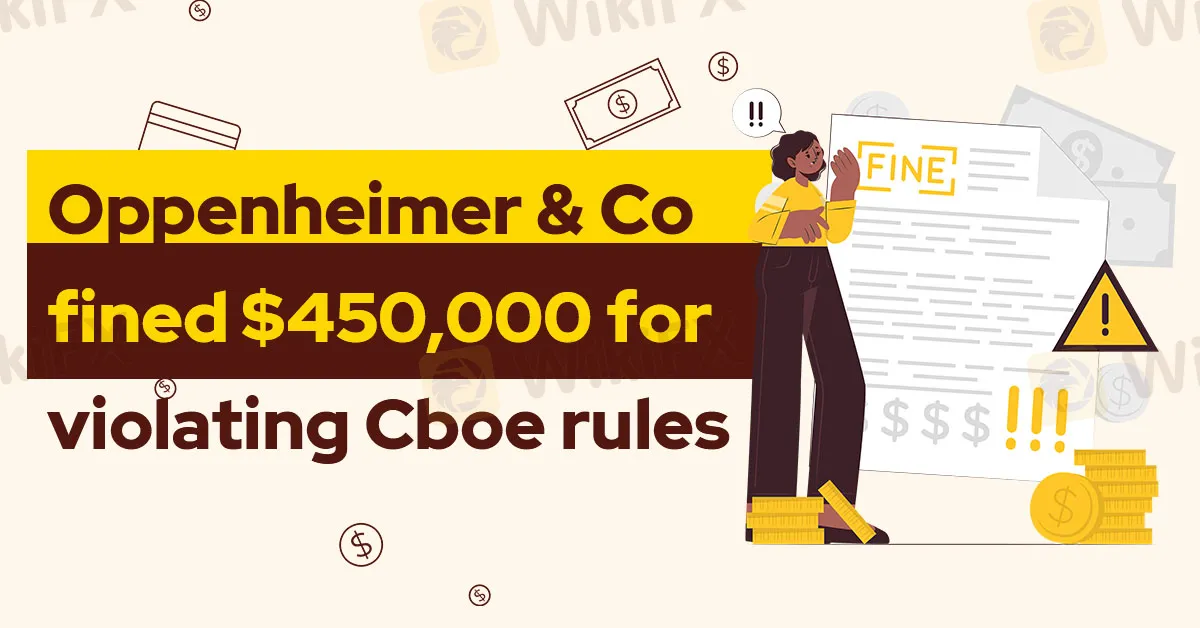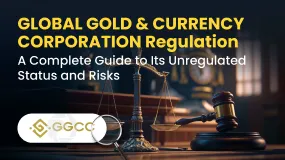Abstract:Oppenheimer & Co. Inc., a prominent financial institution, recently entered into a settlement agreement with Cboe Exchange, Inc., incurring a $450,000 fine. This settlement arises from alleged breaches of Exchange Rules spanning from January 1, 2017, to approximately September 15, 2021. In this article, we will delve into the particulars of the case, the issues in question, and the measures taken by Oppenheimer to address the situation.

Oppenheimer & Co. Inc., a prominent financial institution, recently entered into a settlement agreement with Cboe Exchange, Inc., incurring a $450,000 fine. This settlement arises from alleged breaches of Exchange Rules spanning from January 1, 2017, to approximately September 15, 2021. In this article, we will delve into the particulars of the case, the issues in question, and the measures taken by Oppenheimer to address the situation.
During the specified period, Oppenheimer faced accusations related to its reporting practices concerning the Large Options Position Report system (LOPR). It was reported that in at least 809,000 instances, the firm either failed to report or inaccurately reported positions to LOPR when their system did not recognize certain customers' accounts acting in concert, commonly referred to as “AIC.” When an account held positions with fewer than 200 options contracts, Oppenheimer's LOPR reporting system failed to consolidate the account with others acting in concert, resulting in the failure to report approximately 21,000 positions to LOPR in about 370,000 instances.
Furthermore, when an account or AIC group held options positions exceeding 200 contracts, Oppenheimer's LOPR reporting system erroneously omitted the aggregation of the account with others in concert, leading to approximately 29,000 positions being reported to LOPR with inaccurate AIC information in roughly 439,000 instances.
Oppenheimer also faced criticism for not establishing a supervisory system with written supervisory procedures (WSPs) designed to reasonably prevent and detect violations of LOPR reporting rules for accounts acting in concert. While WSPs were in place during the Relevant Period, their focus primarily centered on identifying AIC relationships at the account's inception and did not account for changes in AIC relationships. Additionally, Oppenheimer lacked a system for follow-up and review to identify changes in AIC relationships or verify that the AIC information reported to LOPR matched the information stored in customer account records.
Oppenheimer's Response
Oppenheimer & Co. Inc. has neither admitted nor denied the alleged violations but has consented to the terms of the settlement. The firm has initiated efforts to rectify the LOPR reporting issue by September 15, 2021. While the settlement entails a substantial financial penalty of $450,000, it also includes a censure.
Conclusion
The settlement between Oppenheimer & Co. Inc. and Cboe Exchange, Inc. underscores the significance of accurate and punctual reporting within the financial industry. While Oppenheimer has accepted the fine and censure without admitting wrongdoing, this case serves as a reminder to financial institutions regarding the necessity of maintaining robust reporting systems and supervisory procedures to ensure compliance with regulatory requirements. Additionally, it emphasizes the importance of promptly addressing any deficiencies in reporting practices to uphold the integrity of the financial markets.










